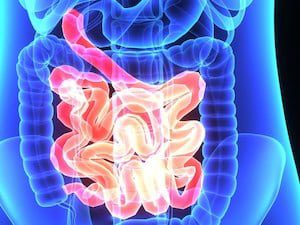Many elderly people face constipation issues in their daily life, and the reasons behind this phenomenon are diverse, not solely due to a single factor. It is crucial to address it promptly when the body accumulates toxins. By adjusting the diet, this condition can be effectively alleviated. Here are some suggestions:
As age advances, various bodily functions gradually decline, including weakened intestinal peristalsis, which directly affects bowel movements and leads to chronic constipation. Furthermore, elderly people suffering from chronic illnesses often experience constipation issues.
In modern living conditions, some elderly individuals tend to consume refined foods due to dental problems or preferences, lacking fiber-rich fruits and vegetables, which reduces natural stimulation to the intestines and thus triggers constipation.
The side effects of medications cannot be overlooked, such as calcium supplements, antihypertensive drugs, which may inhibit intestinal peristalsis and become a common cause of constipation in the elderly, especially for those with weak constitutions and prolonged bed rest.
Imbalance in intestinal flora is also one of the factors leading to constipation in elderly individuals, affecting appetite and digestion. Timely supplementation of probiotics aids in restoring intestinal health and promoting natural bowel movements.
Adequate sleep is equally important in maintaining a normal bowel movement rhythm. Lack of sleep can disrupt this biological clock and worsen the constipation situation. Therefore, ensuring good sleep quality is crucial for the elderly.
When dealing with constipation, comprehensive measures should be taken: – Understand the potential risks of constipation, avoid excessive straining during bowel movements, and consider using gentle laxative methods. – Adjust dietary structure, increase dietary fiber intake gradually, ensure an adequate intake of water, drinking warm water or honey water in the morning can promote intestinal peristalsis. – Establish regular bowel habits, utilize the circadian rhythm effect, and provide appropriate assistance to bedridden or immobile individuals. – Engage in moderate exercise, such as walking, tai chi, or passive exercises while in bed to enhance intestinal peristalsis. – If necessary, use laxatives under medical guidance, avoiding long-term dependence on strong stimulant laxatives. – Focus on mental health, reduce stress, and maintain a positive mindset.
As for dietary adjustments, foods such as asparagus, tomatoes, nuts, yogurt, radishes, and honey, rich in fiber, vitamins, probiotics, etc., play a positive role in improving constipation and are suitable for incorporation into daily diet.
In conclusion, through comprehensive management of lifestyle and dietary habits, elderly people’s constipation issues can be effectively alleviated, thus enhancing their quality of life.


